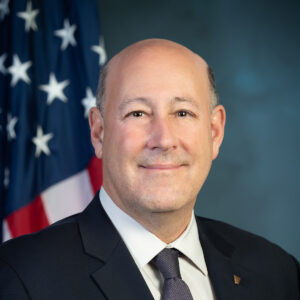Counseling agencies and individual counselors that have submitted public comments on a U.S. Department of Housing and Urban Development (HUD) proposal to expand housing counseling delivery options have voiced their public support for the measure, increasing the likelihood of implementation.
The proposal was published in the Federal Register in late October. It would “update HUD’s regulations that require participating agencies to provide in-person counseling to clients that prefer this format to reflect advances in technology, align with client engagement preferences, and preserve consumer protections,” the proposal reads.
The proposal would also amend HUD’s existing regulations to allow housing counseling agencies “to use alternative communication methods, including virtual meeting tools, in lieu of providing in-person services.” Some of these services were more readily permitted during the COVID-19 pandemic, but went away in some jurisdictions as most pandemic leniencies have expired.
Comments in support of the proposed counseling rule
National counseling agency Money Management International (MMI), which also provides HUD-approved reverse mortgage counseling services, publicly stated its support of the rule.
“[MMI] supports HUD’s proposed rule to amend the regulation requiring in-person counseling, thereby, modernizing the delivery of counseling services by allowing housing counseling agencies to use alternative communication methods, including virtual meeting tools, according to client preference,” the agency said in its comment. “We look forward to [the] publication of this rule.”
Anonymous commenters who described themselves as HUD-certified counselors also weighed in offering support.
“As a HUD-Certified Housing Counselor very experienced with the benefits of extended convenience and efficiency the Temporary Waiver Program has provided to agencies like mine and our clients since the COVID emergency, I emphatically support this regulation change to make such service options permanently available moving forward,” one commenter posted.
In-person counseling’s unintended barriers
Another anonymous commenter described the potential benefits the rule could bring to many different kinds of people seeking counseling services.
“I am a HUD-certified housing counselor with 10 years of experience,” the commenter posted. “Over my time as a counselor, I have seen an increase in support of virtual counseling options from my clients, even prior to COVID-19. The ability to provide virtual/phone counseling has helped increase our agency’s reach and provide more services to the rural and disabled community.”
The commenter also noted that increases to the cost of living, transportation and childcare have sometimes served as a “barrier on those […] who rely on public transportation or are single parents.”
Credit Card Management Services, Inc., another HUD-approved agency that offers reverse mortgage counseling, specifically cited the rule’s impact on that segment.
“Our reverse mortgage clients particularly appreciate appointments over the phone,” the comment read.
Reverse mortgage implications
Restrictions to in-person counseling in some locales have caused issues specific to the reverse mortgage industry. In the state of Massachusetts, there is a law that requires reverse mortgage counseling services to be conducted in person, which creates challenges for both those originating reverse mortgages in that state and the counseling resources available to its residents.
It is the only state in the nation to require in-person reverse mortgage counseling services, a restriction that effectively but briefly halted reverse mortgage business within Massachusetts after business restrictions and lockdown orders were imposed during the early days of the COVID-19 pandemic.

The state legislature has instead offered temporary relief. It has given remote counseling service waivers and has granted several extensions to the deadline for such services. The most recent extension will expire on Mar. 31, 2024.
At the National Reverse Mortgage Lenders Association (NRMLA) Annual Meeting and Expo in Nashville this past October, HUD’s Deputy Assistant Secretary for Housing Counseling David Berenbaum discussed the proposed rule and what it would mean broadly for HUD-approved services overseen by his office, and reverse mortgage services in particular.
“The requirements of those services will still continue to be our high expectations for the program as it exists today,” Berenbaum said at the event. “It will be up to each consumer to choose what modality or delivery service they would like to receive. I can tell you that one of the reasons telephonic is most popular is people can do it in the morning, over weekends or at nighttime, because that’s what many housing counseling agencies know that’s when consumers want to speak to a counselor.”
Counseling quality ‘regardless of modality’
Berenbaum alluded to the challenges in Massachusetts. He elected not to directly comment on them but said that there is no reason for HUD to believe that alternative methods could not provide quality services.
“Our expectation at HUD is that the quality of the services should be maintained regardless of modality,” he said. “And I do know from my experience in the space that superb housing counseling can happen in many different ways. It’s really the professional offering those services that make all the difference.”
Final comments on the proposed rule are due by Dec. 26.





